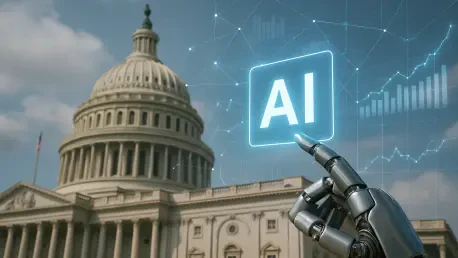I’m thrilled to sit down with Rupert Marais, our in-house security specialist with deep expertise in endpoint and device security, cybersecurity strategies, and network management. Today, we’re diving into the groundbreaking deal between Microsoft and the US General Services Administration to provide free Copilot AI services to federal government workers. This conversation will explore the details of this initiative, its goals for enhancing efficiency in public sector operations, the robust security measures in place, and how it supports tech modernization across agencies. Let’s unpack the potential impact of this AI integration on government workflows and taxpayer savings.
How does the recent agreement between Microsoft and the US General Services Administration stand out in terms of benefits for federal workers?
This deal is a game-changer for federal employees. Microsoft is offering a full year of Microsoft 365 Copilot at no additional cost to workers on the high-security G5 license plan. This AI tool is designed for those handling sensitive data, and the agreement also includes discounts on Azure cloud services and the elimination of data transfer fees. Beyond the tools themselves, it’s projected to save taxpayers around $3.1 billion in the first year alone by streamlining procurement and leveraging the government’s collective purchasing power.
What are the overarching objectives of introducing Microsoft Copilot to government operations?
The primary goal is to position the US government as a leader in AI adoption, aligning with the administration’s AI Action Plan. Copilot is intended to automate routine tasks like managing citizen inquiries or analyzing complex datasets, allowing public servants to focus on more critical work. This initiative is about enhancing efficiency—freeing up time and resources so employees can tackle high-impact issues with greater focus and speed.
Can you walk us through the security considerations tied to rolling out AI tools in such a sensitive environment?
Security is paramount when integrating AI into government systems. Microsoft has ensured that its core cloud and AI services meet FedRAMP High authorization, which is the gold standard for handling sensitive federal data. While Copilot itself is still pending full certification, it has received provisional approval from the Department of Defense. Additionally, tools like Microsoft Sentinel and Entra ID are part of the package to support the government’s zero-trust security framework, providing robust safeguards against potential risks.
In what ways does this deal pave the way for technological modernization across different government agencies?
This agreement is a significant step toward modernization by addressing long-standing barriers. The discounts on cloud services and removal of data transfer fees make it easier for agencies to adopt cutting-edge tech without budget constraints. It also fosters better collaboration by simplifying data sharing between departments. Essentially, it tackles the financial and logistical hurdles that have historically slowed down tech upgrades in the public sector.
What kind of support is being provided to ensure government workers can effectively leverage Copilot?
Microsoft is investing $20 million into training and support to ensure this isn’t just a tool drop-off. They’re rolling out workshops and tailored programs to help agencies integrate Copilot into their workflows. The focus is on practical adoption—showing workers how to use AI to reduce waste and optimize operations. This hands-on approach is crucial to making sure the technology delivers real, measurable results.
Looking at the broader implications, how do you see this initiative shaping the future of government efficiency and service delivery?
The potential here is transformative. For millions of federal workers, having an AI-powered assistant like Copilot could redefine daily operations, making processes faster and more accurate. Over the next few years, with an estimated $6 billion in value, this could improve citizen services, strengthen cybersecurity, and set a precedent for how technology drives public sector innovation. It’s not just about saving money—it’s about building a more responsive and capable government.
What is your forecast for the role of AI in government operations over the next decade?
I believe AI will become a cornerstone of government operations within the next ten years. We’re likely to see it embedded in everything from policy analysis to real-time decision-making, with tools like Copilot evolving to handle even more complex tasks. The key will be balancing innovation with security—ensuring that as adoption grows, trust and data protection remain non-negotiable. If done right, AI could fundamentally enhance how governments serve their citizens, making services more personalized and efficient while maintaining rigorous oversight.









